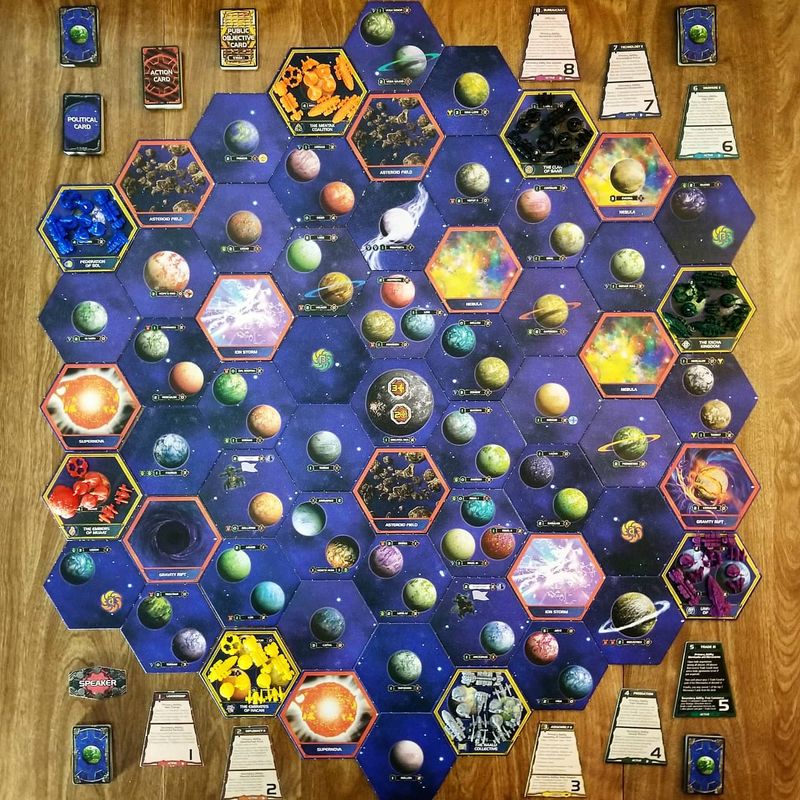Ever wonder what activities keep brilliant minds busy during their free time?
While most people unwind with Netflix or social media, those with high intelligence often gravitate toward hobbies that challenge their thinking. These aren’t your average pastimes—they’re mental workouts that stretch cognitive abilities and provide deep satisfaction.
The following activities might seem strange or tedious to many, but they’re treasured by those with exceptional brainpower.
1. Chess

Watching two people silently stare at wooden pieces for hours might seem boring to outsiders. Yet chess players are engaged in complex mental warfare, calculating possibilities 15-20 moves ahead.
The game rewards pattern recognition, strategic planning, and psychological insight. Each match becomes a unique puzzle with nearly infinite variations.
For the intellectually gifted, chess isn’t just a game—it’s a mental dojo where patience meets brilliance.
2. Solving Complex Puzzles

Most people abandon difficult puzzles after a few frustrating minutes. The highly intelligent, however, find profound joy in the struggle against seemingly impossible challenges.
Whether wrestling with a Rubik’s cube, untangling logic problems, or completing the Sunday crossword without Google’s help, puzzle enthusiasts experience a dopamine rush when solutions finally click. The harder the puzzle, the sweeter the victory.
3. Reading

While casual readers seek entertainment, intellectual bookworms approach reading as active conversation with great minds across time. They annotate margins, research unfamiliar references, and connect ideas across multiple texts.
Fiction becomes a laboratory for understanding human psychology. Non-fiction transforms into mental scaffolding for building comprehensive worldviews.
Smart readers don’t just consume books—they dissect, question, and absorb them on multiple levels simultaneously.
4. Learning New Languages

The average person might memorize a few vacation phrases, but highly intelligent language learners become fascinated with grammatical structures and cultural nuances. They’re not just collecting vocabulary—they’re acquiring entirely new thinking frameworks.
Each language reveals unique ways to categorize time, space, and relationships. Mastering these differences exercises mental flexibility few other activities can match.
5. Strategy Board Games

Games like Go, Diplomacy, and Twilight Imperium might seem tediously complex to casual gamers. For sharp minds, however, these intricate systems offer playgrounds for advanced planning, resource management, and human psychology.
Unlike simple games of chance, these contests reward those who can hold multiple scenarios in mind simultaneously. Players must balance immediate tactics against long-term strategy.
Each game becomes a mental chess match extending beyond the board into social dynamics.
6. Playing Musical Instruments

Where casual listeners hear simple melodies, musically inclined intellectuals perceive mathematical patterns, emotional narratives, and cultural histories simultaneously. Learning an instrument challenges both analytical and creative brain functions.
The practice demands pattern recognition, physical precision, emotional expression, and memory—a full neurological workout. For the highly intelligent, music becomes a language more precise than words.
7. Meditation

Skeptics see meditation as simple relaxation. Brilliant practitioners recognize it as sophisticated consciousness research conducted in the laboratory of their own minds.
Advanced meditators systematically explore attention, awareness, and perception with scientific precision. They observe how thoughts arise, track subtle emotional shifts, and map their own cognitive patterns.
This internal exploration provides insights no external instrument can measure—a frontier of knowledge accessible only through disciplined introspection.
8. Creative Writing

Anyone can put words on paper, but intelligent writers construct intricate worlds governed by consistent internal logic. They’re not merely telling stories—they’re building complex systems.
The craft demands mastery of psychology, sociology, history, and language. Gifted writers must simultaneously manage plot architecture, character development, thematic resonance, and linguistic precision.
For brilliant minds, writing becomes a multidimensional puzzle where every word adjustment ripples through the entire creation.
9. Building Models

What looks like toy assembly to some represents sophisticated engineering challenges to intellectually gifted model builders. Creating detailed replicas demands precision, spatial reasoning, and historical knowledge.
Each tiny component must be researched, modified, and perfectly placed. Advanced modelers often customize parts, calculate proper scaling, and solve structural problems in three dimensions.
The hobby combines mathematical thinking with artistic execution—a perfect storm for minds that thrive on complex systems.
10. Reflective Journaling

Unlike simple diary-keeping, intellectual journalers use structured writing to analyze patterns in their thinking, behavior, and emotional responses. They create personal knowledge databases that track intellectual growth over time.
The practice becomes a metacognitive laboratory for testing hypotheses about their own psychology. Pages fill with observations, questions, and connections between seemingly unrelated ideas.
Smart journalers don’t just record events—they systematically decode their own operating systems.


Comments
Loading…